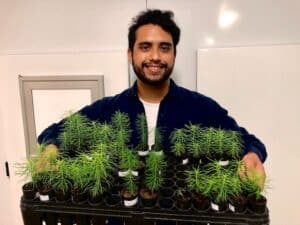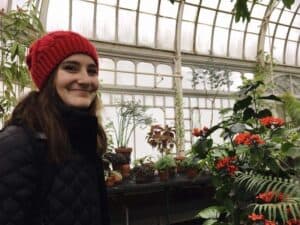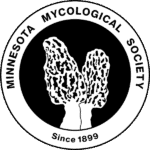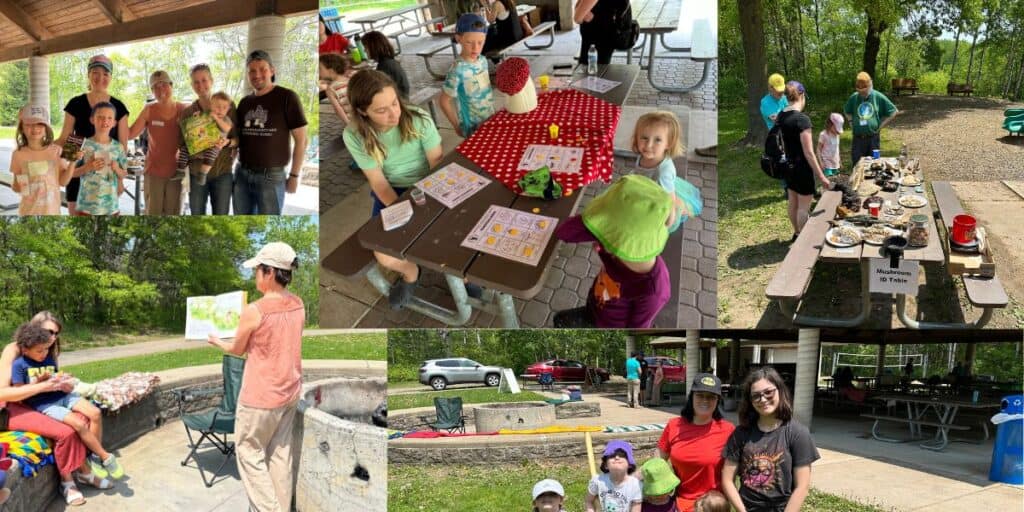MMS Meeting
Tonight, Eduardo Perez-Pazos and Talia Michaud, two of this year’s winners of the MMS Graduate Student Scholarship, will present on a topic of their research and field of study. This scholarship to offered every year for students currently enrolled in graduate level studies with an emphasis on mycology at the University of Minnesota.
Eduardo Perez-Pazos – Unraveling the natural history of the genus Clavulina across temperate forests in North America
 Clavulina is an ectomycorrhizal genus of macroscopic “coral” mushrooms distributed in temperate and tropical ecosystems, being particularly diverse in the latter. This genus has been considered to be ectomycorrhizal (ECM), nevertheless, isotopic data has shown intermediate ∂15N, ∂13C, and ∂14C values, which suggests that some Clavulina species might have saprotrophic abilities, in addition to their ECM lifestyle. I want to get ∂15N and ∂13C stable isotope data from Clavulina mushrooms. I will make collections across Minnesota and request samples from herbarium specimens (from both, temperate and tropical species of the genus). Acquiring isotopic data from different Clavulina species, across multiple ecosystem types, will allow me to infer their trophic mode as well as their ecological functions in different forests. Simultaneously, I will sequence collected specimens, and those collections will be added to the UMN Bell Museum Herbarium.
Clavulina is an ectomycorrhizal genus of macroscopic “coral” mushrooms distributed in temperate and tropical ecosystems, being particularly diverse in the latter. This genus has been considered to be ectomycorrhizal (ECM), nevertheless, isotopic data has shown intermediate ∂15N, ∂13C, and ∂14C values, which suggests that some Clavulina species might have saprotrophic abilities, in addition to their ECM lifestyle. I want to get ∂15N and ∂13C stable isotope data from Clavulina mushrooms. I will make collections across Minnesota and request samples from herbarium specimens (from both, temperate and tropical species of the genus). Acquiring isotopic data from different Clavulina species, across multiple ecosystem types, will allow me to infer their trophic mode as well as their ecological functions in different forests. Simultaneously, I will sequence collected specimens, and those collections will be added to the UMN Bell Museum Herbarium.
Eduardo Pérez-Pazos was born and raised in Mexico City, where he lived his entire life before moving into the Twin Cities for studying his Ph.D. in Ecology, Evolution, and Behavior program at the University of Minnesota. He became attracted to fungi since he was an undergrad student. At the National Autonomous University of Mexico (UNAM, by its acronym in Spanish), he learned the fundamentals of fungi. Eduardo became fascinated by the shapes of fungal sporocarps (of mushroom-forming fungi) and then by their complexity in terms of their life cycle, different types of sexual reproduction, and mainly their ecological role in almost every type of environment in the world. He did his Undergrad and Masters´ Studies at UNAM. After that, he became a teacher of several Fungal Biology and Ecology courses and through teaching, Eduardo developed a more profound joy for studying fungi and their interactions at different ecological levels. Eduardo is a second-year Ph.D. Student in the Kennedy Lab, where he will develop his research studying mycorrhizal symbioses as well as other interactions that involve fungi.
ResearchGate profile: https://www.researchgate.net/profile/Eduardo-Perez-Pazos; Pérez-Pazos et al., 2019 (https://doi.org/10.1007/s11557-019-01516-z); Yuan et al., 2020 (https://doi.org/10.1007/s13225-020-00461-7)
Talia Michaud – Herbarium collections elucidate mycorrhizal responses to global change over the last century
 We tracked the responses of mycorrhizal plants and fungi to the many environmental changes experienced by Minnesota’s forests over the last century using nutrient and stable isotope analysis of herbarium specimens. Our findings detail the natural history of this essential symbiosis and highlight the power of historical collections. Ultimately, this project engages with fundamental theories about how symbioses persist over evolutionary timescales.
We tracked the responses of mycorrhizal plants and fungi to the many environmental changes experienced by Minnesota’s forests over the last century using nutrient and stable isotope analysis of herbarium specimens. Our findings detail the natural history of this essential symbiosis and highlight the power of historical collections. Ultimately, this project engages with fundamental theories about how symbioses persist over evolutionary timescales.
Talia Michaud is broadly interested in fungal ecology, symbiosis, and the philosophy of science. Originally from the foothills of New England, she received her B.A. in Environmental Studies at Mount Holyoke College in Massachusetts where she studied mycorrhizal ecology and critical theory. Talia is currently working towards her PhD in Plant and Microbial Biology in Dr. Peter Kennedy’s Lab at the University of Minnesota.
A Zoom link to access this meeting along with instructions and password will be emailed to MMS members.
If you haven’t used Zoom before and don’t want to miss anything, you may want to click on the meeting link to download Zoom and familiarize yourself with it at least 15 minutes prior to the meeting.
This meeting is free and open to the public. If you are not a member, contact Tim Clemens to get details on how to join this virtual meeting. Please do so no later than an hour before the meeting.
How to join a Zoom meeting – You do not need a Zoom account, but you will need the Zoom app installed on your desktop or mobile device. You can either download the Zoom app in advance here. Or, you will be automatically prompted to download and install the Zoom app when you click on a meeting link for the first time. You can also join a test meeting at any time at https://zoom.us/test. Watch a video on how to join a Zoom meeting here.

